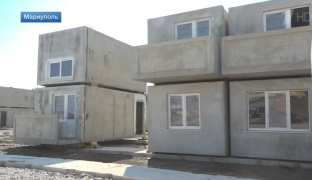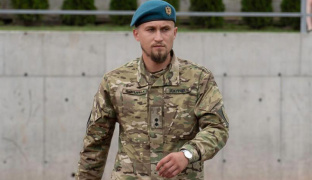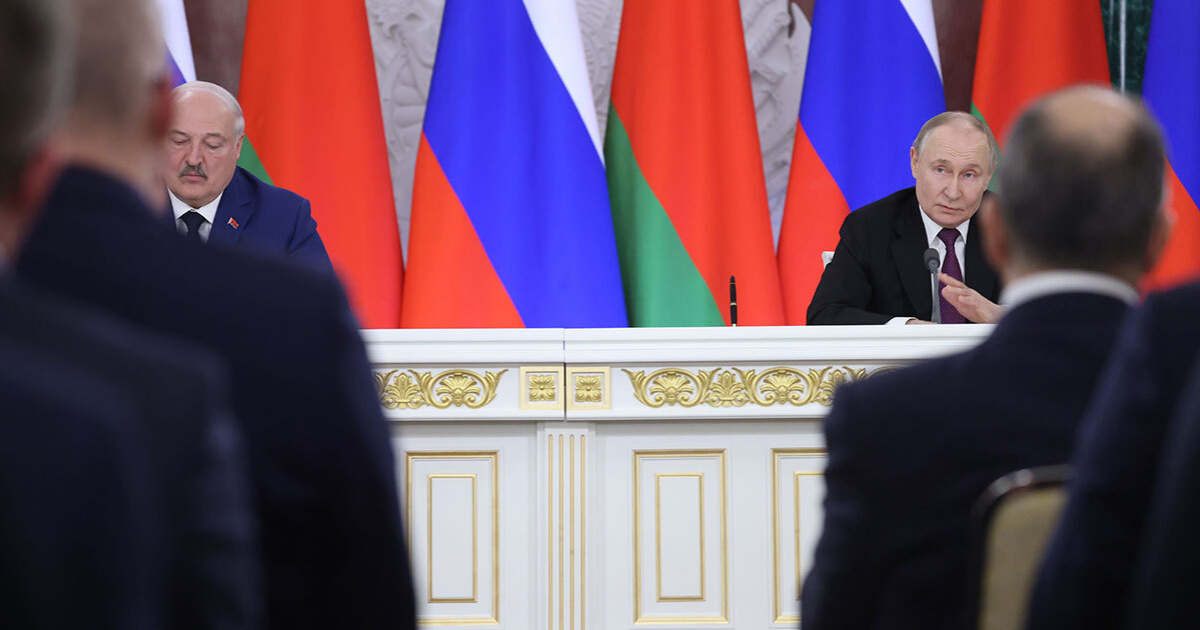The growth of political influence of the Privat group after the last year's presidential and parliamentary elections is materialized in economic bonuses for its owner Ihor Kolomoyskyi.
The business of the other largest oligarchs becomes weaker, losing state support in various forms.
Thus, by the end of the presidency of Volodymyr Zelensky, the "Big Four" of the Ukrainian business elites is capable of transforming into a 1+3 construction.
Having secured the absolute impact of Privat, not only on politics, but also in the Ukrainian economy.
Generous gift for Privat
Head of the board of NJSC Naftogaz of Ukraine Andriy Kobolyev began to promote the idea of a strange settlement with PJSC Ukrnafta (UN) back in the period of Petro Poroshenko's presidency.
Strange – because it looks absurd: the state-owned company (50%+1 share of Ukrnafta is owned by the state in the person of Naftogaz, but in fact, it is controlled by I.Kolomoyskyi) will pay off its debts with the state… in the money of the same state.
The point is that Naftogaz agreed to concede rights to the disputed amount of gas produced by UN in 2006-2010 to Ukrnafta
Litigation on this issue lasted over 10 years with varying degrees of success, but under A. Kobolyev, Naftogaz for some reason decided to capitulate.
In turn, having received money for the indicated volume of gas at current prices (well, not quite at current prices, now gas in the EU has fallen in price due to warm weather, therefore, it has been calculated as more expensive), UN will pay tax debt to the state.
According to director of the A-95 consulting company Serhiy Kuyun, yhe amount of debt reaches UAH 30 billion.
As the then head of the Ukrnafta's board Mark Rollins previously explained, the company just does not have the cash resources to close the debt to the state budget in any other way.
At the same time, the issue of 1 million tons of oil worth UAH 7.5 billion, which UN for some reason shipped to fictitious companies without prepayment in 2015 and which subsequently smoothly disappeared, remains behind the scenes.
According to the media reports, these firms turned out to be associated with the co-owners of Privat, which own about 43% of the Ukrnafta's authorized capital.
We should remember here that earlier, secret additional agreements became public, in accordance with which previous head of the management board of UN Peter Van Hecke withdrew from managing the company in favor of minority shareholders - in exchange for a generous cash reward.
Therefore, it is logical to assume that a similar scenario worked with M.Rollins.
Then we can talk about the theft of resources from the state-owned company for UAH 7.5 billion. The situation is being viewed by the Prosecutor General's Office of Ukraine (now the Office of the Prosecutor General) through this lens.
However, the investigation of the criminal proceedings since 2016 is still not finalized.
In addition, the issue of covering losses incurred from the sale of oil at low prices to companies associated with the co-owner of Privat remains unresolved.
According to A-95 estimates, UN alone received less than $1 billion revenue for 2008-2010 due to this scheme. That is why it is somehow illogical to agree to the concession of disputed gas in favor of Ukrnafta for the state in the person of Naftogaz.
Nevertheless, receiving a monthly wage of UAH 2.08 million from the state, A.Kobolyev actually went against the interests of this state itself, having come down on the side of minority shareholders.

But the problem remained: the dubious settlement between the NJSC and UN was to be approved by the Cabinet of Ministers. This was never done during the period when it was led by Volodymyr Groysman.
But the current Prime Minister Oleksiy Honcharuk was not afraid to support the initiative.
So on February 3, executive director of Naftogaz Yuriy Vitrenko announced that the Cabinet of Ministers had approved a draft settlement, according to which the NJSC would pay UAH 15 billion in favor of UN for the disputed gas.
In addition, another UAH 14.6 billion will be transferred as an advance payment for future services – i.e. for the volumes of gas that UN has yet to produce in subsequent years.
In fact, we are talking about the presentation of interest-free loan for Ukrnafta for several years at the expense of the state.
Every Ukrainian taxpayer has the right to ask a question: "why the state does not want to lend me UAH 14.6 billion for free?"
This deal is still out of sight of Western diplomats and creditors of Ukraine.
Now they criticize Volodymyr Zelensky and his team for inaction on the issue of returning $5.5 billion withdrawn from Privatbank by its former owners, I.Kolomoyskyi and his partner Gennadiy Bogolyubov.
In particular, Luke Devin, EU Foreign Policy Director responsible for the Eastern Partnership program, stated on November 14, 2019: "We should not prosecute those involved in bank fraud. Where are those who stole $5.5 billion from Privatbank? Are they in prison, are they being persecuted? No. If we lose the rule of law, we will play along with those who say: why should we help Ukraine, if they do not prosecute those who stole money in their own country? And this is a fair question".
Let us recall that earlier, the Croll agency, according to the results of the audit, estimated the amount of embezzlement from Privatbank at $5.5 billion – during the period when the bank belonged to I.Kolomoyskyi and G.Bogolyubov.
Later, this money was reimbursed to the bank from the state budget of Ukraine, i.e. at the expense of Ukrainian taxpayers.
Therefore, it is easy to assume that the implementation of a dubious deal between Naftogaz and Ukrnafta will strengthen the position of skeptics who insist on winding down the partnership of the West with Ukraine.
Does V.Zelensky understand this?
Meanwhile, I.Kolomoyskyi continues to triumphally defeat the state of Ukraine in Ukrainian courts. So, he secured ownership of the Dnipropetrovsk Airport in late January.

This happened thanks to the verdict of the Northern Court of Appeal of January 23. It confirmed the decision of the Commercial Court of Kyiv of September 11, 2019 on the refusal to terminate the contract of sale of 94.6% of the shares of Dniproavia.
The State Property Fund of Ukraine came forward with a lawsuit to terminate the contract, according to which Privat gained control of the Dnipropetrovsk Airport in 2009 through Galtera LLC.
Sadness for Akhmetov
Formally, owner of the SCM group continues to stay at the top of ranking of the richest Ukrainian businessmen.
The sensational January purchase of villa of the Belgian king Leopold on the Cote d'Azur of France for €200 million kind of says to all ill-wishers: "Keep dreaming!".
But if you take a closer look, it is easy to conclude: R. Akhmetov's affairs are going uneasily.
The debt of the DTEK energy holding, which is part of SCM, to operator of the trunk transmission lines NPC Ukrenergo became one of the controversial issues.
According to media reports, the debt of the DTEK group to NPC Ukrenergo as of January 10 reached UAH 544.48 million and arose due to the termination of payments for the transmission of electricity during its export.
DTEK denies debt and disputes the payments charged.
In particular, the company asks the Kyiv Regional Administrative Court to cancel the decision of the National Commission for State Regulation of Energy and Public Utilities (NCSREPU), which established the procedure for charging fees for the transmission of electricity during its export.
It is interesting that in this case, DTEK appeals to the absence of such a provision in European energy legislation. Although what does this have to do with non-EU Ukraine?
On the other hand, the times when the "regional" majority in the Verkhovna Rada passed laws convenient for the SCM business at a blink of an eye have passed.
Therefore, now the company of R.Akhmetov just has no choice but to try to sue the state bodies and pass the buck to Europe.
At the same time, the question worth UAH 545 million "hung up" in the Antimonopoly Committee of Ukraine, where DTEK complained to NCSREPU and Ukrenergo. The AMCU did not say either "yes" or "no".
The same situation is with the approval of purchase of a 25% stake in the Pokrovske Mine Management PJSC, the largest Ukrainian producer of coking coal, by the Metinvest group (which manages the mining and smelting business of SCM). The AMCU has been considering this issue since April 2019 and still not yet made any decision.
Meanwhile, an article quite similar to the personal PR of head of the AMCU Yuriy Terentyev appeared in the media in mid-February. This article quite directly hints at the fact that the decision on Pokrovske will be similar to that which the committee made on another Akhmetov case.
It is about buying the Dnipro Coke Plant from the Russian Evraz group. As stated in the article, the deal was not finalized due to restrictions introduced by the AMCU for the buyer, i.e. for Metinvest.
However, this problem is more global and extended over time, and the group now has enough current problems that have arisen on the environmental front.
Metinvest's resident PR specialists spend a lot of effort and money trying to convince the public of the company's responsible attitude towards environmental protection.
But facts are a stubborn thing. 7 enterprises in the top 10 ranking of the largest pollutants, compiled by the Ministry of Energy and Environmental Protection, are included in either DTEK or Metinvest. In a word, they are controlled by SCM.
That is why the order of Prime Minister Oleksiy Honcharuk, given to chairman of the State Ecological Inspectorate of Ukraine Yehor Firsov on February 3, does not promise anything good for SCM.
According to the Ministry of Energy, the head of the government demanded that the environmental inspectorate conduct comprehensive inspections of the largest contaminating plants.
Actually, the first results are already there. It became known on February 20 that the Mariupol Metallurgical Plant named after Illich (MMPI) was charged a fine of UAH 10 million for excess discharges to water from September 4, 2019 to February 4, 2020.
Moreover, the fine was paid in pre-trial order, without any objection from Metinvest – for the first time for the entire period of the existence of the environmental inspection.
In turn, general director of MMPI Taras Shevchenko noted that two previous checks recorded no violations. This once again confirms that the rules of the game for R.Akhmetov and his business have changed.
Probably, this should be based on in order to get an explanation of why the owner of SCM is now actively trying to secure the loyalty of V.Zelensky and his team.
According to Western media, R.Akhmetov and his top managers want to achieve the goal through the loyalty of their own media to the coverage of activities of the authorities in general and the president in particular. The evident support of Zelensky's peacekeeping policy in the Donbass by Akhmetov's group is obvious.
Losers: exit course
Against this background, the affairs of owner of the Finance and Credit group (F&C) Kostyantyn Zhevago are quite sad – because he does not have a presence in the Ukrainian media market.
This means that there is no subject for conversation with the current inhabitants of high bossy chairs in the president's office.
It is not surprising that in late January, the British company Ferrexpo Plc., main asset of F&C, announced the seizure of a 50.3% stake in the controlled Poltava Mining and Processing Plant, main exporter of Ukrainian iron ore.
The freezing was imposed by the decision of the Ukrainian Themis as part of the investigation of criminal proceedings, as well as litigations around the Finance and Credit Bank.
But K.Zhevago is not included in the "Big Four". Perhaps, even under P.Poroshenko, he was pointedly chosen to show other oligarchs the possible consequences of intransigence with the authorities.
However, owner of Group DF Dmytro Firtash, who has not left Austria for 6 years due to the threat of extradition to the USA, understands everything perfectly well.
Recently, his enterprises and companies are practically not mentioned in the Ukrainian information space. This is the case when the lack of news is bad news itself.
With the return of former head of the presidential administration Viktor Medvedchuk to the big politics, the owner of Group DF is no longer interested in his former partners in RosUkrEnergo AG as an economic base for pro-Russian political forces. In fact, he was run off from the big game.
Having no access to a cheap Gazprom resource, D.Firtash and his business partners, Yuriy Boyko and Serhiy Lyovochkin, are doomed to be lap dogs of V.Medvedchuk in politics. And to the gradual surrender of positions in the economy.
A good example here is the situation at the Sievierodonetsk Azot association, which is part of Group DF. At the end of 2019, this enterprise, a large manufacturer of nitrogen fertilizers, worked with a load of 19.6% of the project.
Owner of the EastOne group Victor Pinchuk is going through hard times as well. His main asset in Ukraine is the Interpipe company, which produces steel pipes and railway wheels.
But railway wheels are niche products. That is, its sales have little clout for the company as a whole. And the production of steel pipes in Ukraine in 2019 fell immediately by 9%, to 1.01 million tons.
At the same time, the Interpipe plants have 66.7% of total production. In January of this year, the decline was aggravated: a drop of 23.9% was recorded, up to 65.8 thousand tons.
Such a sharp decline can serve as confirmation of the insider information of the media, according to which the state-owned company PJSC Ukrgasvydobuvannya (main buyer of the Interpipe products in Ukraine) has accumulated large pipe stocks and will not buy them from V.Pinchuk's company in 2020.
In addition, citing market sources, the media previously reported that Bank Credit Dnipro, owned by V.Pinchuk, was put up for sale.
At the same time, OstroV noted the unfavorable position in the gas business of the owner of EastOne. In particular, he had to sell 28.65% in Regal Petroleum Plc in 2019.
Through subsidiaries in Ukraine, this company conducts production in Ukraine at the Mekhedovskyi-Holotovshchynskyi and Svyrydivskyi gas condensate fields in the Poltava oblast.
Now, in early February, the media announced the upcoming sale of the entire EastOne gas business, combined into the Geo Alliance group.
The group owns the rights to develop 16 promising oil and gas bearins in Luhansk, Poltava, Ivano-Frankivsk, Sumy, Dnipropetrovsk and Kharkiv oblasts.
If the deal is realized, general assessment of V.Pinchuk's financial condition will significantly decrease.
Thus, it is logical to expect the transformation of I.Kolomoyskyi into a super oligarch in the next 1-2 years amid weakening of the business of R.Akhmetov, D.Firtash and V.Pinchuk.
Vitaliy Krymov, OstroV




